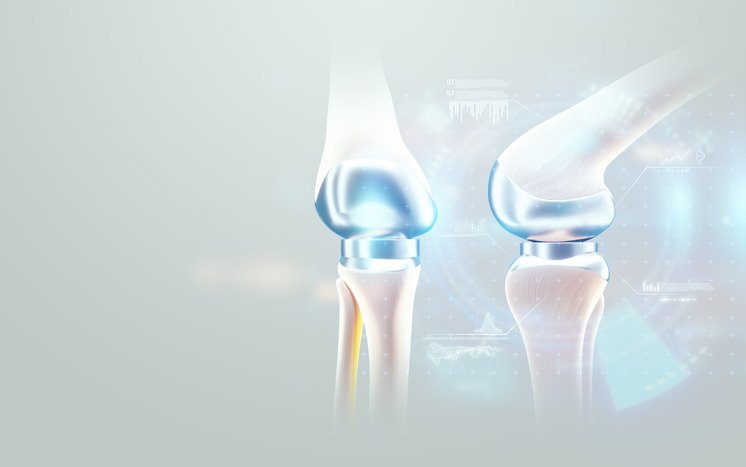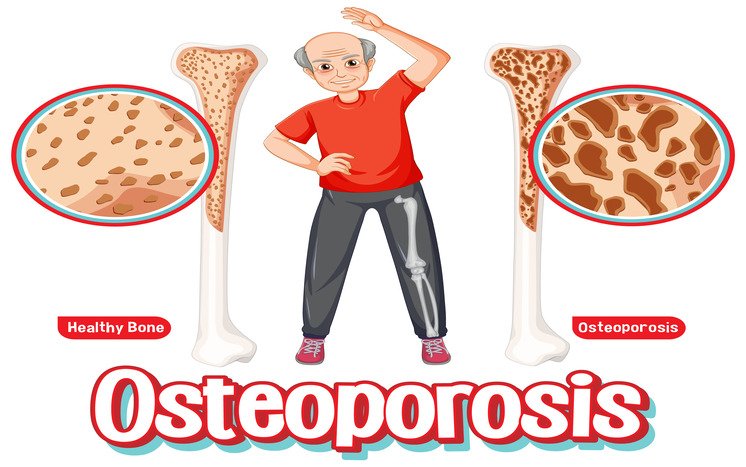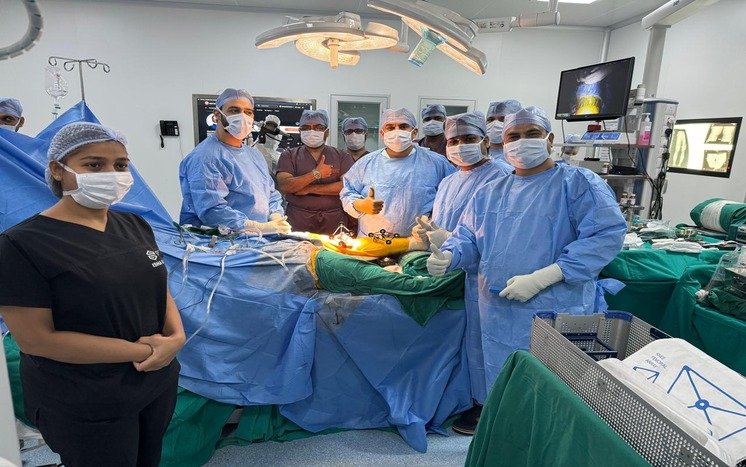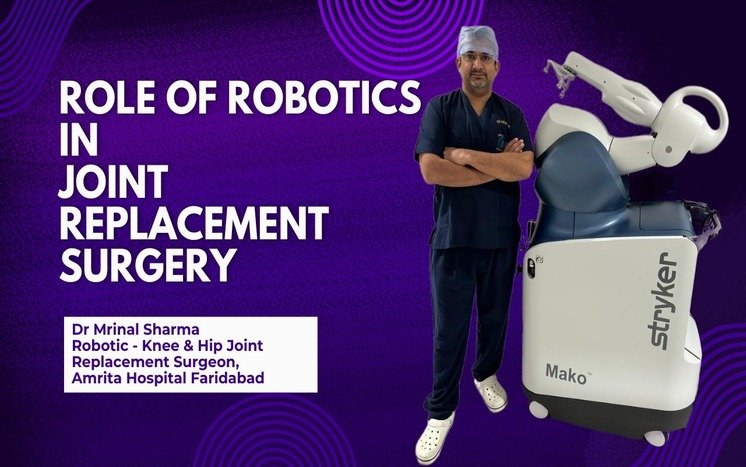
10:00am to 04:00pm (Mon to Sat) - Amrita Hospital, Faridabad
06:00pm to 08:00pm (Mon to Sat) - Arthrocare Clinic, Noida
10:00am to 04:00pm (Mon to Sat) - Amrita Hospital, Faridabad
06:00pm to 08:00pm (Mon to Sat) - Arthrocare Clinic, Noida
 March 15, 2024
March 15, 2024
Knee replacement surgery has transformed the lives of millions around the globe, offering relief from pain and improved mobility to those suffering from severe knee arthritis and other debilitating knee conditions. Central to the success of this procedure is the knee implant, also known as a prosthesis, which comes in various types designed to mimic the knee’s natural movements. Understanding the types of knee implants available is crucial for patients considering knee replacement surgery, as the choice of implant can significantly impact the surgery’s outcome and the patient’s quality of life post-operation.
The most commonly used type, fixed-bearing implants, have been the standard in knee replacement for decades. In these prostheses, the polyethylene cushion on the tibial component is fixed and does not move. While these implants are highly successful and provide excellent long-term results for most patients, they are generally recommended for older, less active individuals due to their design limitations under high-stress activities.
Designed to offer a greater range of motion, mobile-bearing implants feature a polyethylene insert that can rotate slightly within the tibial component, allowing for a more natural knee movement. This additional movement capability can benefit younger, more active patients as it potentially reduces wear on the implant over time. However, the increased complexity of the design might not be suitable for all patients.
Medial pivot implants mimic the knee’s natural swinging and rotating motion, focusing on stabilizing the medial (inner) side of the knee while allowing the lateral (outer) side to move more freely. This design provides a more natural feeling during walking or climbing stairs. Patients often report high satisfaction with the stability and motion range provided by these implants.
Recognizing anatomical differences between male and female knees, some manufacturers offer gender-specific or gender-neutral implants designed to fit the typical female or male anatomy better. These implants may feature a thinner profile or a different angle between the knee and the thigh to accommodate common differences in knee shape and size.
With medical imaging and manufacturing advancements, customized knee implants are becoming an option for some patients. These implants are designed using 3D imaging techniques to match the precise anatomy of the patient’s knee, offering a personalized fit that could improve implant alignment, function, and longevity. Customized implants are particularly appealing for patients with unusual anatomy or those who have had previous knee surgeries.
For patients with arthritis that affects only one part of the knee—usually the medial compartment—unicompartmental or partial knee implants may be an option. These implants replace only the damaged part of the knee, preserving more of the patient’s natural bone and tissue. Partial knee replacements can offer quicker recovery times and a more natural knee function but are only suitable for a select group of patients.
Dr. Mrinal Sharma stands out as a beacon of excellence in the field of orthopedic surgery, particularly renowned for his expertise in knee replacement procedures. With a distinguished career marked by relentless dedication and groundbreaking surgical techniques, Dr. Mrinal Sharma has earned the reputation of being the best knee replacement surgeon available to patients seeking not just relief, but a renewed lease on life. His approach combines the latest advancements in medical technology with a compassionate understanding of his patients’ needs, ensuring outcomes that are both technically successful and personally transformative.
Dr. Mrinal Sharma’s expertise is not just in performing surgeries, but in crafting personalized treatment plans that address the unique concerns and aspirations of each patient. His commitment to continuous learning and innovation keeps him at the forefront of orthopedic surgery. For anyone struggling with knee pain and looking for a solution that offers not just mobility, but a return to an active, fulfilling lifestyle, Dr. Mrinal Sharma represents the pinnacle of surgical care and expertise.
Choosing the right type of knee implant is a decision that requires careful consideration of various factors, including the patient’s age, activity level, knee anatomy, and specific health conditions. Consulting with a knowledgeable and experienced orthopedic surgeon is crucial in making an informed decision that aligns with the patient’s lifestyle and long-term health goals.
As orthopedic surgery continues to evolve, so do the options for knee implants. Staying informed about the latest advancements and understanding the pros and cons of each type of implant can empower patients to take an active role in their treatment and achieve the best possible outcomes from knee replacement surgery.




